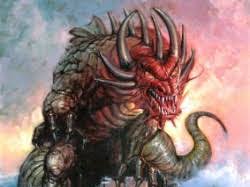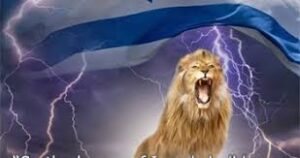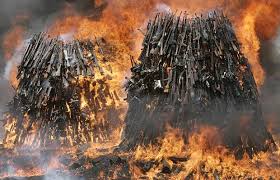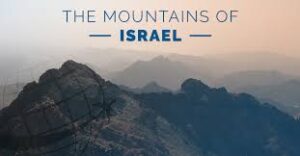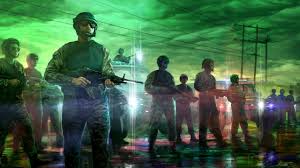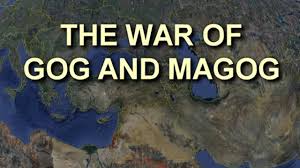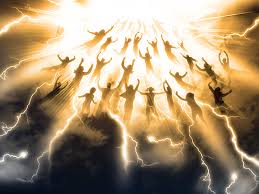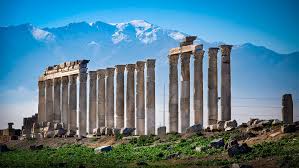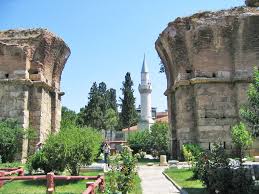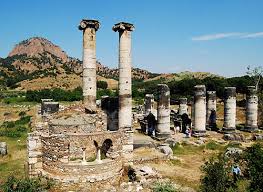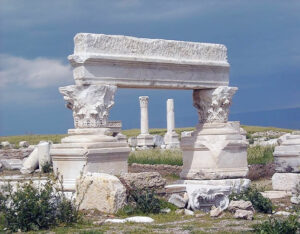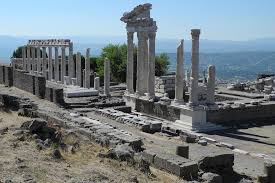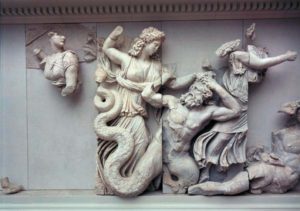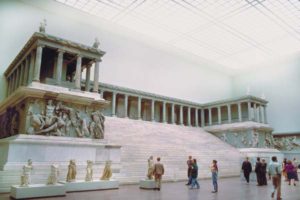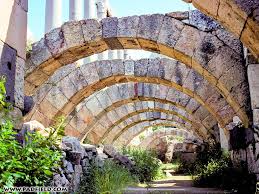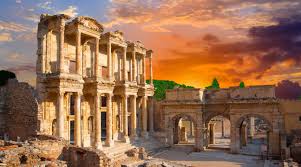Bt – The Rise of the Man of Lawlessness Dani’el 7:3-8 and 24b, Revelation 13:1-2
The Rise of the Man of Lawlessness
Dani’el 7:3-8 and 24b, Revelation 13:1-2,
and Second Thessalonians 2:1-3
The rise of the man of lawlessness DIG: Who do you think restrains this man of lawlessness? Why? When will he be revealed? Why did Yeshua warn believers of a counterfeit Messiah? What is God’s ultimate purpose in allowing him to deceive many people? What signs mark his coming?
REFLECT: God’s love and grace are the basis for eternal encouragement in the face of any temporary distress in our lives. The Lord gives us hope for the future, and that hope is good, meaning beneficial, for it assures believers of the return of our victorious Jesus Christ. In light of the coming of this beast, what do you have to be encouraged about today in the midst of your set backs in your life?
In the chaotic times of confusion, uncertainty and unrest that will take place during the Great Tribulation, the world will long for a leader. People will be desperately hoping for someone powerful and influential to unite a divided world; someone to bring hope in the midst of helplessness; someone to provide a sense of security in an unsettled time of apprehension and fear. They will be franticly seeking a strong, charismatic leader to pull the world back from the brink of disaster.
A man called the antichrist will fulfill those longings and he will be preparing to rise to power in the years before the Rapture. The Spirit of God now acts as the Restrainer who holds back lawlessness, and will continue to do so until He is taken out of the way (Second Thessalonians 2:6-8). How does He do it? Through believers, whom He indwells and through whom He works in the world to restrain, or hold back, the swelling tide of lawless living. When the Church is taken out of this world, empowered by Satan, the antichrist will be ready to make his move and unify the world under his rule. At first, he will appear to be the perfect choice. And for a brief time he will bring peace and prosperity. But he will turn out to be far more than anyone bargained for. He will be a dictator more cruel and powerful than any other leader the world has ever known. This man, called the beast, will be the culmination of a long line of pseudo world conquerors. What men like Nimrod, Alexander the Great, the Roman emperors, Hitler or Stalin only dreamed of doing, the antichrist will actually do. He will rule the world and receive its worship.
Jesus warned of a counterfeit Messiah in the last days. He said: At that time if anyone says to you, “Look, here is the Christ!” or “Look, there he is,” do not believe it. For false Christs and false prophets will appear and perform signs and miracles to deceive the elect – if that were possible. So be on your guard. I have told you everything ahead of time (Matthew 24:24; Mark 13:22). For example, in 1798 Napoleon called for the formation of the nation of Isra’el. The rabbis were saying that Isra’el must be in the last days and that Napoleon, a Gentile from Europe, was the Messiah.
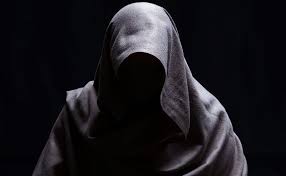
We are first introduced to the man of lawlessness through the book of Dani’el. He pictures him as a little horn, arising out of the ten horns of the fourth beast in Dani’el’s vision. While Dani’el was thinking about the horns, there before him was another horn, a little horn, which came up among them; and three of the first horns were uprooted before it. This horn had eyes like the eyes of a man and a mouth that spoke boastfully (Dani’el 7:3-8). Following the division of the world into ten kingdoms, the antichrist will begin his rise to power. After them another king will arise, different from the earlier ones, he will subdue three kings (Dan 7:24b).
Then Paul makes it clear that his identity will not be revealed before the signing of a seven-year covenant with Isra’el (to see link click Bz – The Signing of the Seven Year Covenant with the Antichrist). Concerning the coming of our Lord Jesus Christ and our being gathered to Him, we ask you, brothers, not to become easily unsettled or alarmed by some prophecy, report or letter supposed to have come from us, saying that the Day of ADONAI has already come. Don’t let anyone deceive you in any way, for that day will not come until the rebellion occurs and the man of lawlessness, the man doomed to destruction is revealed (Second Thessalonians 2:1-3). In this passage two things are said to happen before the Great Tribulation. First, the rebellion, or the one world government, occurs. Secondly, the man of lawlessness, the man doomed to destruction, will sign a seven-year covenant with Isra’el. At that time he will be revealed. The revelation of the identity of the antichrist will only come after the world has been divided into ten kingdoms.
It will be the fourth birth pain.
Later in Dani’el, he saw that horn make war with the holy ones and was winning until the Ancient One came, judgment was given in favor of the holy ones of the Most High, and the time came for the holy ones to take over the kingdom (Dani’el 7:21-22 CJB). Since the antichrist will especially oppose the Jews during the second half of the Great Tribulation (Dani’el 9:26-27; Revelation 12:1-6), they will be his primary target, but because of the kind of person he will be, all believers will clearly experience this opposition to some degree. While he rules, life will not be easy for those who love Jesus.
Dear Heavenly Father, Praise You for being such a loving father! Thank You that You take what the enemy tries to use to hurt us and You turn it around, using it for our eternal joy. For I consider the sufferings of this present time not worthy to be compared with the coming glory to be revealed to us (Romans 8:18). In the holy name of Your Son and His power of resurrection. Amen
While banished to the island of Patmos, John confirmed what Dani’el saw: a beast, or the antichrist, standing on the shore of the sea (or the Gentile nations). The fact that he comes out of the Gentile nations tells us that he will be a Gentile. He will have ten horns and seven heads, with ten crowns on his horns and on each head a blasphemous name (Revelation 13:1). While all unbelievers are children of Satan (John 8:44), no one in all of human history will be more controlled by the devil than the antichrist. You could say, especially in this instance, the apple doesn’t fall far from the tree.
The beast (the antichrist) John saw resembled the three preceding world empires – Greece (a leopard in Dani’el 7:6), Medo-Persia (a bear in Dani’el 7:5) and Babylon (a lion in Dani’el 7:4). The dragon (Satan) gave the beast (the antichrist) his power and his throne and great authority (Revelation 13:2). Because Satan is the source of the antichrist’s power, no human being will be able to go against him. The dragon will influence the beast and cause him to make war against God. He will be the picture of satanic evil.
We do not know exactly how the antichrist will be identified. Maybe it will be determined by the numerical value of his name (see Dp – The Mark is the Name of the Beast or the Number of His Name) or some other way. But he will be made known. The antichrist’s rise to power before the Great Tribulation is a biblical necessity. Since the Tribulation begins with the signing of the seven-year covenant between Isra’el and the antichrist, it will be necessary for him to be in sufficient political power to sign such a contract.142
And may our Lord Jesus Christ himself and God our Father, who has loved us and by his grace given us eternal comfort and a good hope, comfort your hearts and strengthen you in every good word and deed (Second Thessalonians 2:16-17 CJB).



